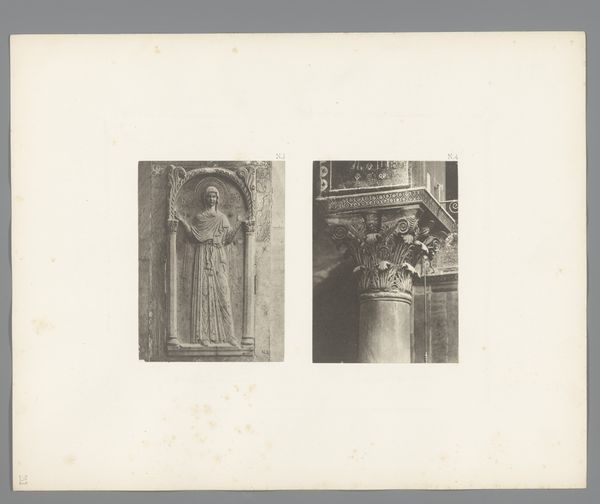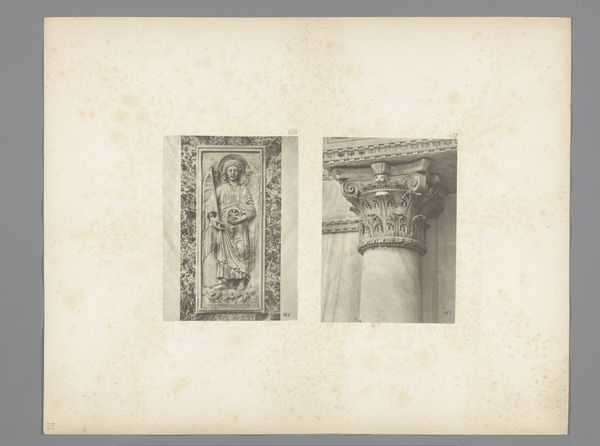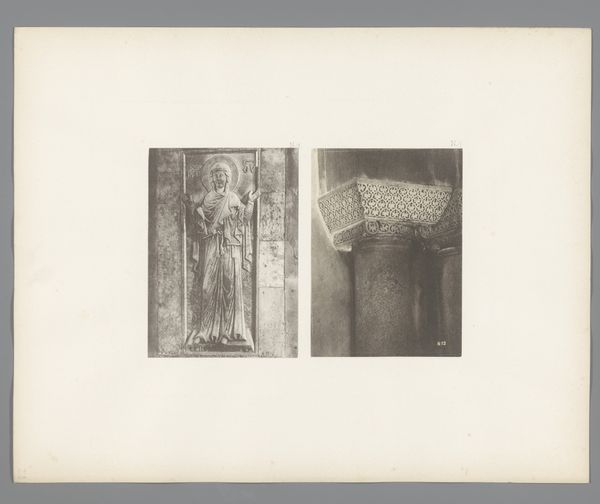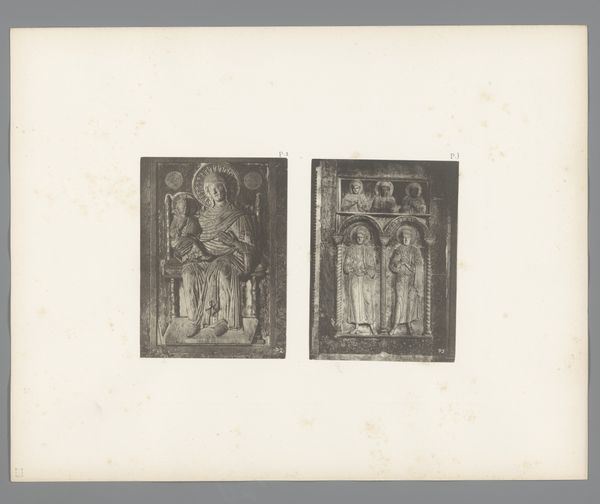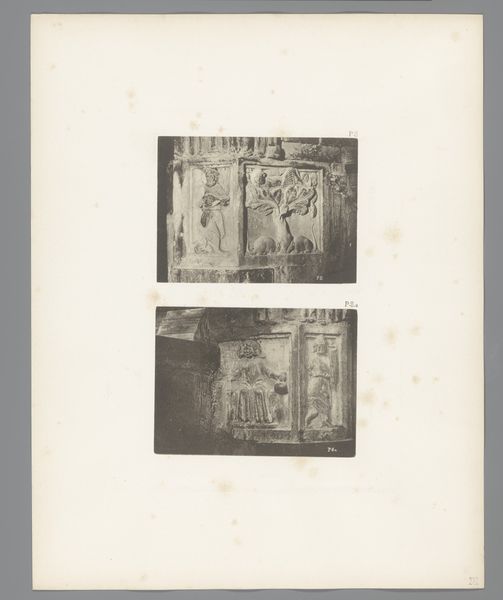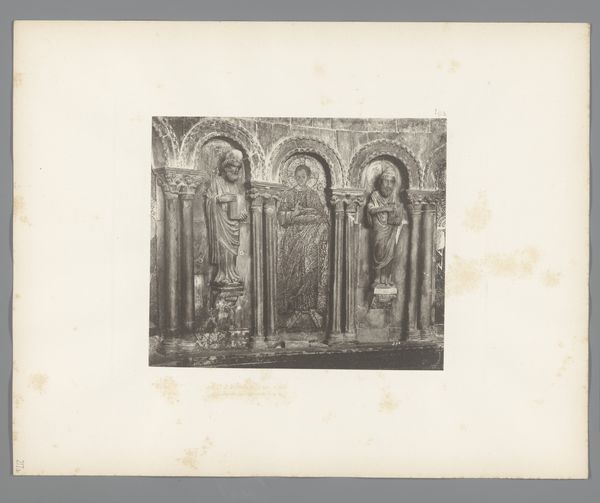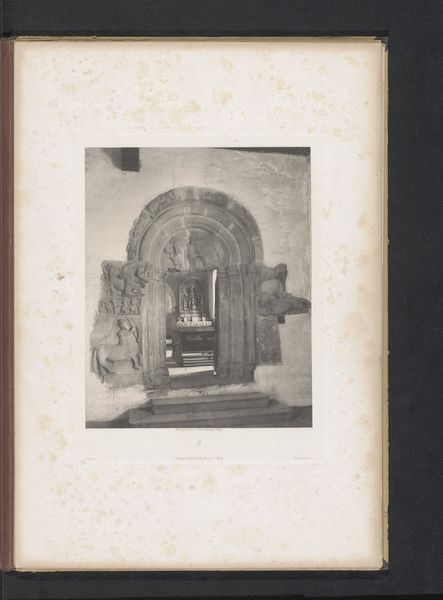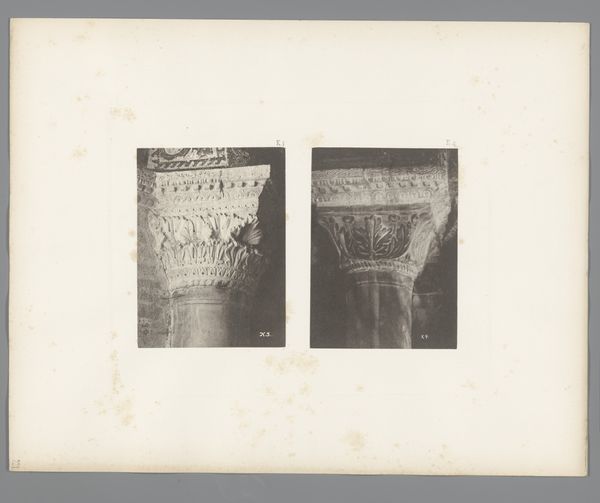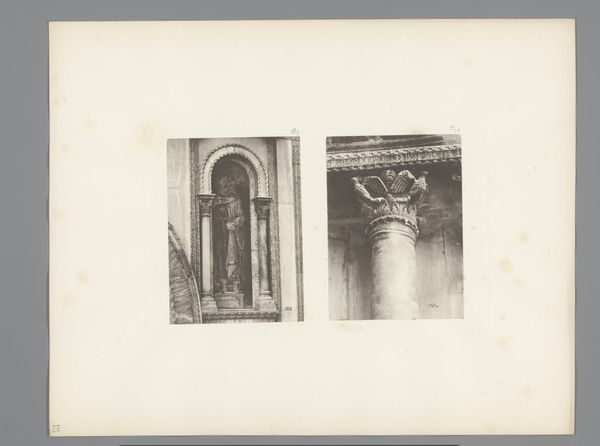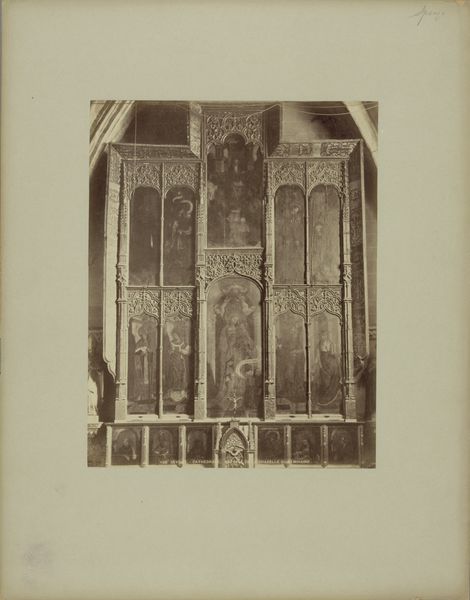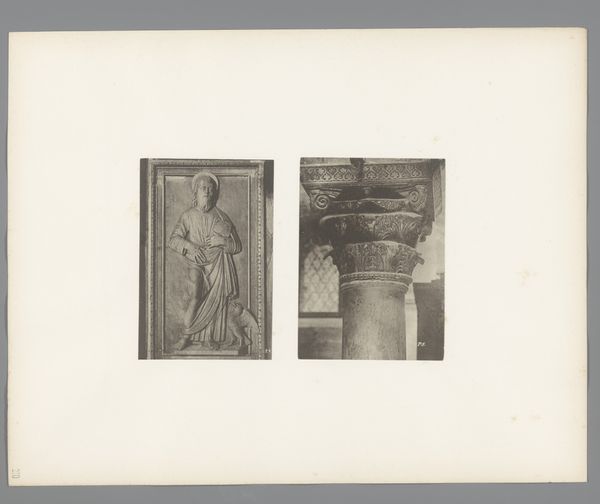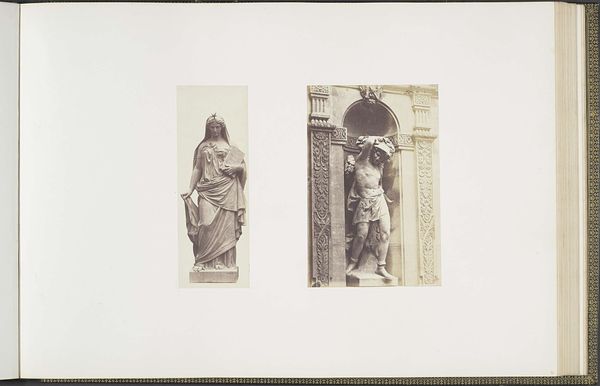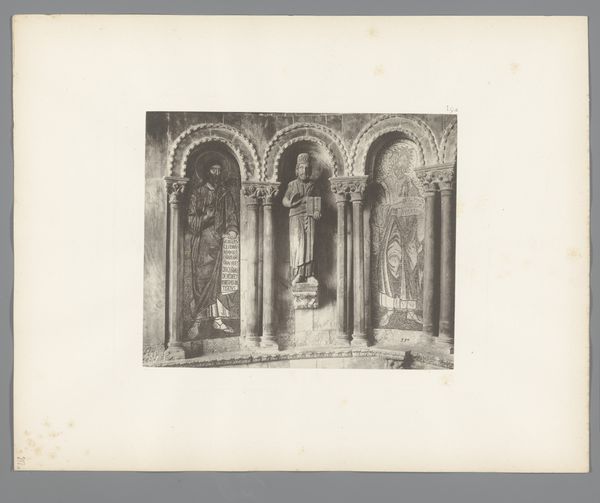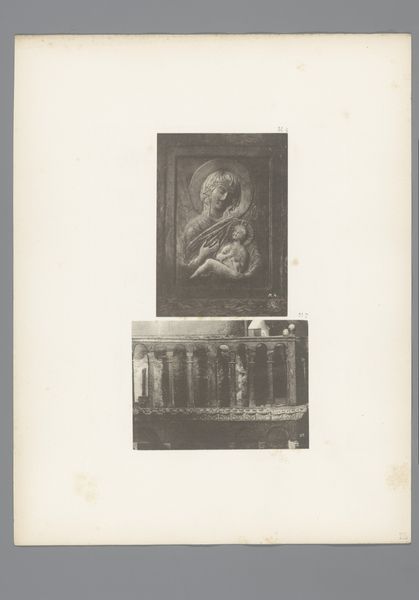
Reliëf van een vrouwelijke heilige en een Korinthisch kapiteel van de San Marco in Venetië before 1885
0:00
0:00
carving, print, relief, photography, sculpture, gelatin-silver-print, marble
#
byzantine-art
#
aged paper
#
homemade paper
#
paper non-digital material
#
pale palette
#
carving
# print
#
light coloured
#
relief
#
photography
#
personal sketchbook
#
ancient-mediterranean
#
sculpture
#
gelatin-silver-print
#
sketchbook drawing
#
watercolour illustration
#
history-painting
#
marble
#
sketchbook art
#
design on paper
Dimensions: height 312 mm, width 398 mm
Copyright: Rijks Museum: Open Domain
Curator: This gelatin silver print by Carl Heinrich Jacobi, dating from before 1885, showcases a relief of a female saint and a Corinthian capital from San Marco in Venice. Editor: My first thought? Echoes. Ghostly echoes of something grand. There's a stillness, a quiet weight, almost sepulchral in the aged tones. Curator: Gelatin silver prints like this were crucial in the 19th century, weren't they? Allowing for mass distribution of architectural details and artworks, disseminating imagery from cultural centers like Venice across the world. Editor: Exactly, it’s a photograph of sculptures – already twice removed from their original imposing grandeur! A further remove through rendering by human hand. Ironic isn't it that even a simple photo bears interpretation! Yet, looking closely, the composition draws me in. It’s simple yet effective. There is the calm saint in contrast with the intricate capital—one is divine peace, the other intricate earthly construction. Curator: Absolutely. The saint’s relief, with its Byzantine influence, is particularly striking. The halo, the gesture… these were visual tools used by the Church to project power and piety. Photography, then, inadvertently participates in these ongoing historical narratives, and gives us further tools to analyse them. Editor: And that Corinthian capital! Those swirling acanthus leaves… frozen mid-unfurling! It speaks to a different kind of power, earthly wealth expressed in lavish decoration. The church acting as this meeting place for the mundane and sublime, maybe that’s the photograph's magic, highlighting these historical power dynamics within a simple frame. It leaves me with the same reverent hush that comes over me when I walk into an old place of worship. Curator: The photograph’s dissemination underscores how powerful cultural institutions like the church use material culture to amplify and extend their ideology into an increasingly interconnected world. The choice of marble for these sculptures is no accident: it’s about permanence and wealth. Jacobi’s photographic record becomes another layer in this complex construction. Editor: Seeing this work I think that the sacred must evolve with our ways to reach the beyond, and also appreciate the simple art forms used to express the unsayable. Curator: A fascinating piece that blends the sacred, the artistic, and the mechanics of cultural transmission. Editor: And, strangely, feels like a really lovely album cover, wouldn't you say?
Comments
No comments
Be the first to comment and join the conversation on the ultimate creative platform.
